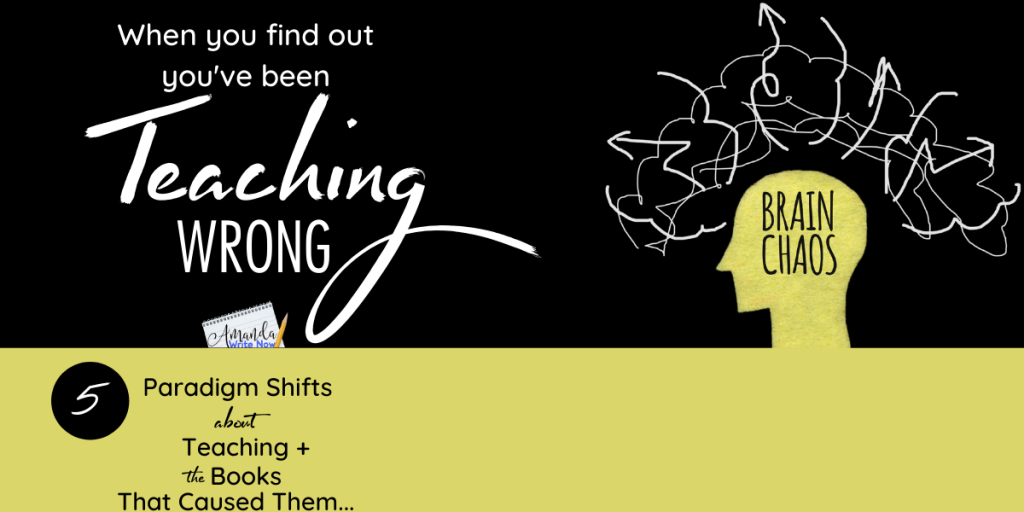
What are best teaching practices? Have you ever questioned your beliefs? When you begin questioning your beliefs, it is referred to as a paradigm shift.
Stephen Covey, the author of 7 Habits of Highly Effective People describes in detail what a paradigm shift is. In his book, he says…
“Belief is another word for paradigm. It’s a synonym. Your belief of the way things are”. -Stephen Covey
We all have many beliefs when it comes to best teaching practices. These beliefs come from the training we’ve received, our colleagues, what leaders at our school prioritize, the books we’ve read and the experiences we’ve had in the classroom.
Early in my teaching career I began to believe in the importance of student engagement. I tried to plan lessons that were meaningful and relevant to the real world. Reading and writing workshop methods seemed to fit perfectly with these beliefs. I have been all for what is termed “a student centered classroom”. In a student centered classroom, the ultimate goal is for students to become independent readers and writers. The teacher’s role is to facilitate the discovery of a love of reading and writing and take that love into their lives, outside of the classroom
Recently, though I’ve taken it upon myself to read books that rely heavily on recent studies about the most effective teaching practices for improving the learning of students living in poverty, students of color and students with special learning needs.
What I’ve found has caused many huge paradigm shifts when it comes to my beliefs about what is best for students. In this blog post I’ll discuss five main paradigm shifts that I’ve experienced and the books that caused these shifts. I’ll also discuss how I’m reconciling the new teaching methods I’m learning (which really aren’t that new honestly) with my love of workshop methods.
As you read, please try to be open. Stephen Covey says it best…
“The more aware we are of our basic paradigms, maps, or assumptions, and the extent to which we have been influenced by our experience, the more we can take responsibility for those paradigms, examine them, test them against reality, listen to others and be open to their perceptions, thereby getting a larger picture and a far more objective view.” -Stephen Covey
Paradigm Shift #1:
Lessons Only Need These Six Parts…
In his book, Focus: Elevating the Essentials to Radically Improve Student Learning, Mike Schmoker describes the parts of a lesson that have the biggest impact on student outcomes and achievement. These six lesson parts aren’t anything new or trendy, they are tried and true classics we’ve all learned about at some point or another in our teaching careers. When teachers utilize these lesson parts they have tremendous success in a wide range of school settings when it comes to impacting student achievement. Focus has all sorts of stories and statistics proving it. Here are the six lesson parts:
- Learning objective-state what students will learn in specific, kid friendly language.
- Anticipatory set-connect with what students already know or are interested in.
- Teach and model-teach the skill by modeling it in front of students.
- Guided practice-give students time to practice the skill as the teacher observes.
- Check for understanding-assess students’ abilities by cold calling (choosing students at random, not by raise of hands), having students show whiteboards or speak with a partner.
- Adjust/reteach-repeat the process if you observe students need it.
How does this impact the workshop model?
So, how do workshop practices align with these six parts of a lesson and how do they deviate? The workshop model utilizes 1-3 but when it comes to 4-6, the workshop model is lacking.
So, what are we to do? Here’s an idea that may be very controversial…stop conferring and do more guided practice as a whole class. I’ll discuss more about this in paradigm shift #3.
Paradigm Shift #2:
Direct Instruction is Best Practice
After reading 7 Myths of Education by Daisy Christodolou, my entire teaching philosophy and foundations as a teacher were put into question. I had many paradigm shifts while reading this book and I recommend all teachers read it.
The most shocking thing I read was how impactful direct instruction is on student achievement and how educators are encouraged not to talk so much. I mean we’ve all heard the saying, the one doing the talking is doing the learning.
Why are educators encouraged to talk less?
Because students have short attention spans and will become disengaged after a while. But, Christodolou makes the important point that, “The solution to poor exposition is better teacher exposition, not a complete absences of teacher exposition” (Christodolou, 67).
Christodolou cites studies done by a respected researcher and educational theorist, John Hattie. In his book Visible Learning: A Synthesis of Over 800 Meta-Analyses Relating to Achievement Hattie describes the effect of direct instruction…
“Hattie synthesised the results of hundreds of different analyses of achievement and measured the effect of different factors. Direct instruction was the third most powerful teacher factor. The only two more powerful teacher factors were feedback, which is not opposed to direct instruction and indeed is a part of it, and instructional quality, which again is not opposed to direct instruction” (Christodolou, 40).
The more I pondered this the more I realized how indoctrinated I have become to the student centered approach…so much so that I truly believed that talking too much was something I needed to get away from. Christodolou’s book has helped me realize that direct instruction (when done in an engaging way) can be incredibly powerful for students.
How does this impact the workshop model?
We are told by workshop gurus (I’ve said this myself), that mini lessons need to be short, ten minutes or less. I still believe that mini lessons should be short because student attention span wanes after about fifteen minutes of direct instruction. But, what needs to happen after the fifteen minutes of direct instruction is guided practice and if students need it, more direct instruction in response to observations made while students are engaged in guided practice. So, again, the writing work time component of workshop should be more fluid, with practice and direct instruction interwoven throughout the work time period.
Paradigm Shift #3:
Differentiation Isn’t That Effective
Of all the paradigm shifts I’ve mentioned this one is, in my opinion, the most controversial. Conferring is such a foundational element in the workshop classroom and the main way that workshop teachers attempt to differentiate to meet the multitude of needs their students have.
Here’s what Schmoker had to say in his book, Focus: Elevating the Essentials to Radically Improve Student Learning about differentiation:
For more than a decade, experts have pointed out there isn’t any evidence supporting this approach. As researcher Bryan Goodwin writes, there is ‘no empirical evidence’ for the effectiveness of this popular pedagogic fad. Not even its advocates would claim that ‘differentiated instruction’ is an ‘evidence-based practice’. It’s not listed anywhere, as one of the top 10, 100, or even 200 proven practices.
This opinion article argues the same thing: Differentiation Doesn’t Work. There’s a link to a counter argument, by Carol Ann Tomlinson, author of many books about differentiated instruction, included at the top of the article too. Both articles are worth reading and pondering.
It’s important to note that those who claim differentiation is ineffective aren’t claiming that teachers shouldn’t provide extra support to students who need it.
Rather, these educational theorists, researchers and authors are trying to prevent teachers from, as Schmoker puts it, “avoid[ing] the trap of routinely grouping students into specious, contrived categories that make effective whole class instruction impossible” (Schmoker, 82).
How does this impact the workshop model?
This information has a huge impact on the conferring component of the workshop method. For years, I’ve struggled with how to confer effectively, while also making sure students who are working independently are still productive and learning. At times, I’ve felt it’s an impossible feat. Maybe the reason I’ve felt that way all these years is because it’s the truth…differentiation is an impossible feat that takes teachers’ energy away from other important work they could be doing. So, do we just stop conferring? Yes and no.
Those that know the workshop model think of conferring as sitting down side by side with a student to provide quick feedback on their writing. But, maybe we could start to think of it differently.
Maybe conferring could look this way instead…
While students are writing/reading, the teacher walks around the room, observing, talking with students, complementing, stating out loud what she notices students doing as they practice a specific skill they learned during a mini lesson or engage in the writing process. She might give a tip here and there but what she’s really looking for are patterns in the work students are producing. Are many students struggling with the same concept? Are some students trying an effective strategy other students in the class could benefit from hearing about? If she sees a pattern, the teacher might stop everyone and provide some direct instruction to the whole class, in the moment and in response to what she’s observed students doing.
So, in a sense, I’m advocating for more whole class conferring.
Paradigm Shift #4:
Stations, Group Work and Projects Waste Time
The Knowledge Gap: The Hidden Cause of America’s Broken Education System and How to Fix It by Natalie Wexler is the next book that has caused me to begin to question my current teaching practices and beliefs about what’s best for students.
So, what is the hidden cause of our broken education system, according to Wexler?
Students need knowledge and schools, districts and educational leaders are too caught up in fads to provide students with the knowledge about history, social studies, science and current events they so desperately need in order to be successful readers and writers.
I’m guessing Wexler would also agree with Schmoker and Christodolou about the powerful impact of direct instruction when she says, “Studies extending back at least thirty years have found that low-income students–and any novice learners–generally do best when they receive direct instruction” (Wexler, 120).
Stations, group work and projects are just a few of the fads brought up in the book. Again, I think back through my 13 years as a teacher and realize the most stressful times were when I was managing stations, projects, and group work!
Why were these experiences so stressful?
Because there were most definitely students who were off task and I worried we were wasting precious time that could be used to help these frequently off task students to grow.
Here’s more of what Wexler has to say about group work…
“Group work, which has become almost mandatory at all grade levels, often devolves into students chatting about whatever strikes their fancies, with the more conscientious group members doing all the work” (Wexler, 223).
I have to agree that this is quite often what happens when I initiate group work in my classroom. So what are we to do? Throw these teaching practices out the window? Well…yes and no.
How does this impact the workshop model?
Stations, group work and projects aren’t really huge features of the workshop model. However, I do think that this information does have an impact on how we go about organizing writing partnerships and supporting students in working with a partner during the editing and revision process.
When we organize groups, I believe pairs are most effective. Students who work in pairs are more accountable and find it harder to evade work. When teaching revision and editing skills, the teacher can model revising and editing a sentence. Next, pairs can practice revising and editing a sentence from their partner’s writing piece. Then, pairs can compare work and get feedback from each other. This is just one example of how explicit direct instruction followed by guided practice can be done in a workshop classroom.
I also believe that stations are an engaging form of guided practice. For example, after a week of mini lessons, students can rotate through stations having them practice the skills they learned during that week’s mini lessons. As students rotate through stations, the teacher can roam the room, observing how students are doing with the skills, and decide if any mini lessons need to be retaught.
What about projects? Daisy Christodoulou describes a test we need to give ourselves when deciding which projects we want students to engage in. What will your project make students think most about? She references Daniel Willingham’s book Why Don’t Students Like School? here…
“…Because of the importance of long-term memory, Willingham goes so far as to say that, ‘the most general and useful idea that cognitive psychology can offer teachers is to ‘review each lesson plan in terms of what the student is likely to think about’ ” (Christodolou, 101).
Projects, stations and group work don’t have to go. But, these methods of teaching do need to be reconsidered and reconfigured (as in the above examples) so that we are taking into account the research about what’s best for student learning.
Paradigm Shift #5:
Reading and Writing A lot Won’t Make Students Better Readers and Writers
This was the hardest paradigm shift for me. I’ve always used this analogy with students and teachers who follow me…piano players don’t get better at piano playing by watching YouTube tutorials or listening to their piano teacher talk. They get better by playing and it’s the same thing with reading and writing. I’m seriously reconsidering this idea.
Both Wexler and Christodoulou discuss a famous experiment that was done in 1987 in which students of all reading levels were given a passage to read that was about baseball and then a quiz to test their comprehension of the passage. You can read more about it here: The Baseball Experiment. The students who did best on the quiz, weren’t necessarily the strong readers…the students who did best were the ones who already had a lot of background knowledge about baseball to begin with.
Reading ability had no impact on how well students were able to understand the passage!
However…background knowledge was essential.
Students come to our classrooms with information already stored in long term memory. However, students who come from a more impoverished background might come with less in their long term memory. This may be because of a lack of books in their home, less conversations with parents who are working odd hours and less travel experience. Students who come from higher socioeconomic backgrounds might come with knowledge about a wide variety of subjects. Their parents most likely can afford to pay for special classes, tutoring, travel, books and more.
All of this to say we need to be prioritizing knowledge in our classrooms. Our students need it, to be successful readers and writers. We can’t just expect that because students are doing a lot of reading and writing in our classrooms that students will be successful with reading and writing.
Here’s what Wexler has to say:
“All of this means that simply writing, and possibly making the same mistakes over and over, isn’t likely to help struggling students. Teachers need to break down the components of the process into manageable chunks and guide students through practicing those chunks in a logical sequence while providing prompt feedback” (Wexler, 224).
How does this impact the workshop model?
This paradigm shift has helped me realize that students need explicit instruction when it comes to writing. They need appropriate background knowledge and vocabulary to comprehend a text. Students need writing mini lessons about how to construct an effective sentence, plan with an outline, add details with appositives and commas, write a hook and construct a five paragraph essay. They need reading mini lessons about close reading techniques, annotation and writing about what they read. This is just to name a few mini lesson topic ideas.
Natalie Wexler has another book called The Writing Revolution that offers very specific ideas about how to go about teaching writing more explicitly. Also, a book called Reading Reconsidered: A Practical Guide to Rigorous Literacy Instruction describes what students desperately need from educators when it comes to reading: exposure to more challenging texts with the guidance of a teacher, close reading strategies and opportunities to write about what they read.
Above all, we need to stop assuming that just because we are giving students time to read and write in class that they are going to improve their reading and writing skills. We need to be explicit in the skills we teach and aware of the evidence from research about what advances student achievement.
Wrap Up
Paradigm shifts are powerful and can lead to positive growth and change. In order for a paradigm shift to occur though, we must remain open to new ideas and find ways to reconcile what we knew before with our new knowledge. Hopefully, this blog post caused some paradigm shifts for you and now you feel armed with information and tools you need to begin empowering your students to succeed in your English classroom and beyond. If you need more information (I always do lol!) then you’ll definitely want to check out these paradigm shift inducing books…
*These links are Amazon Affiliate links. This means that if you purchase the book I will receive a commission at no extra cost to you! I only recommend books I’ve read and have inspired me to be a better person or teacher.
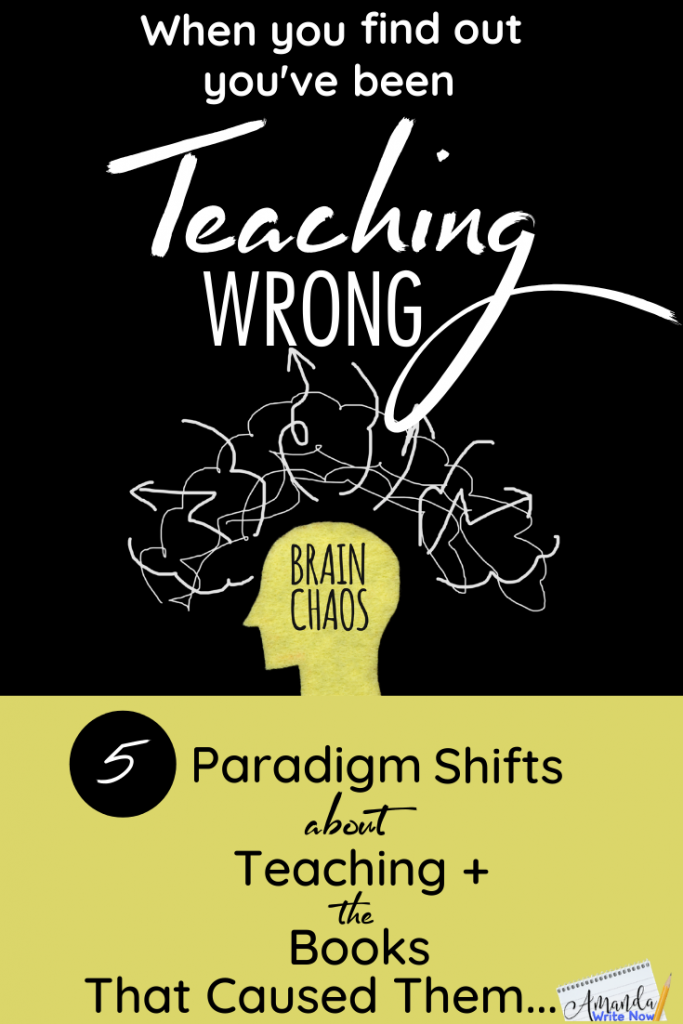
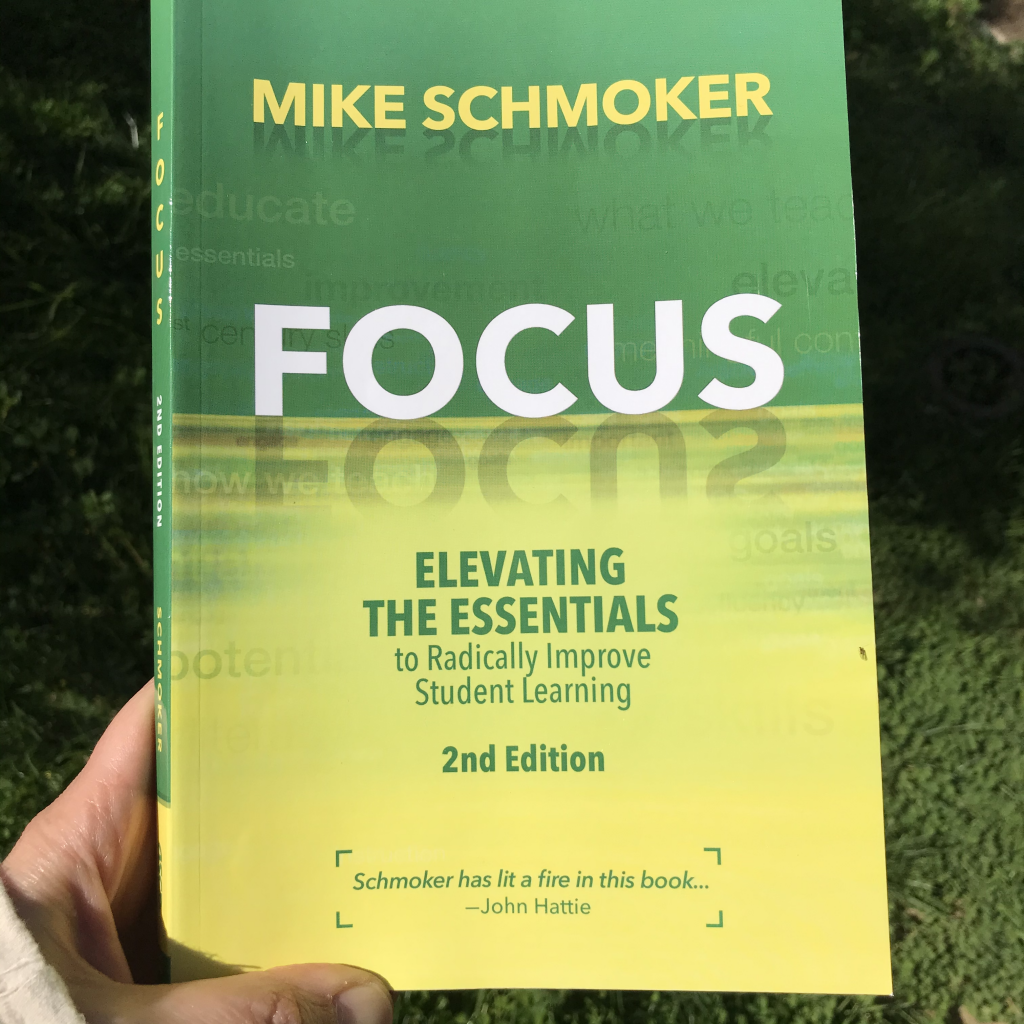
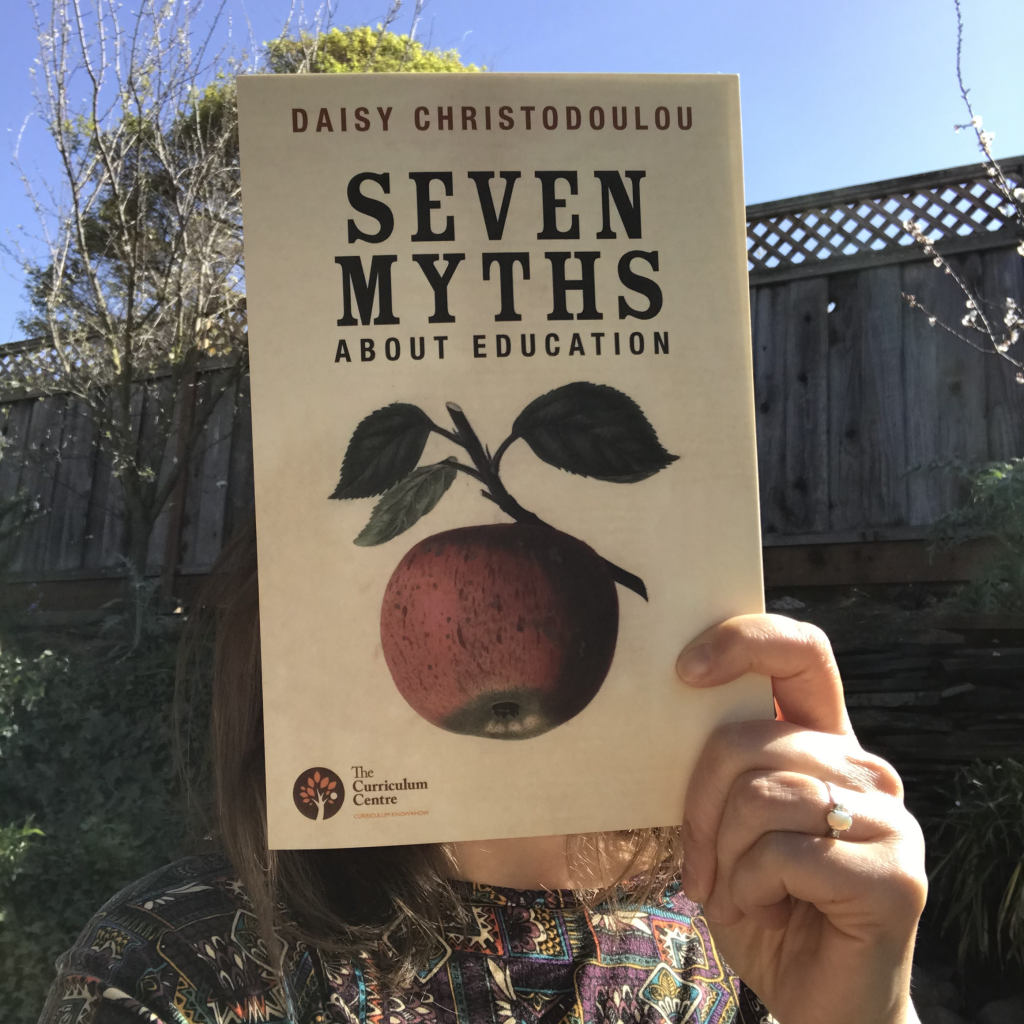
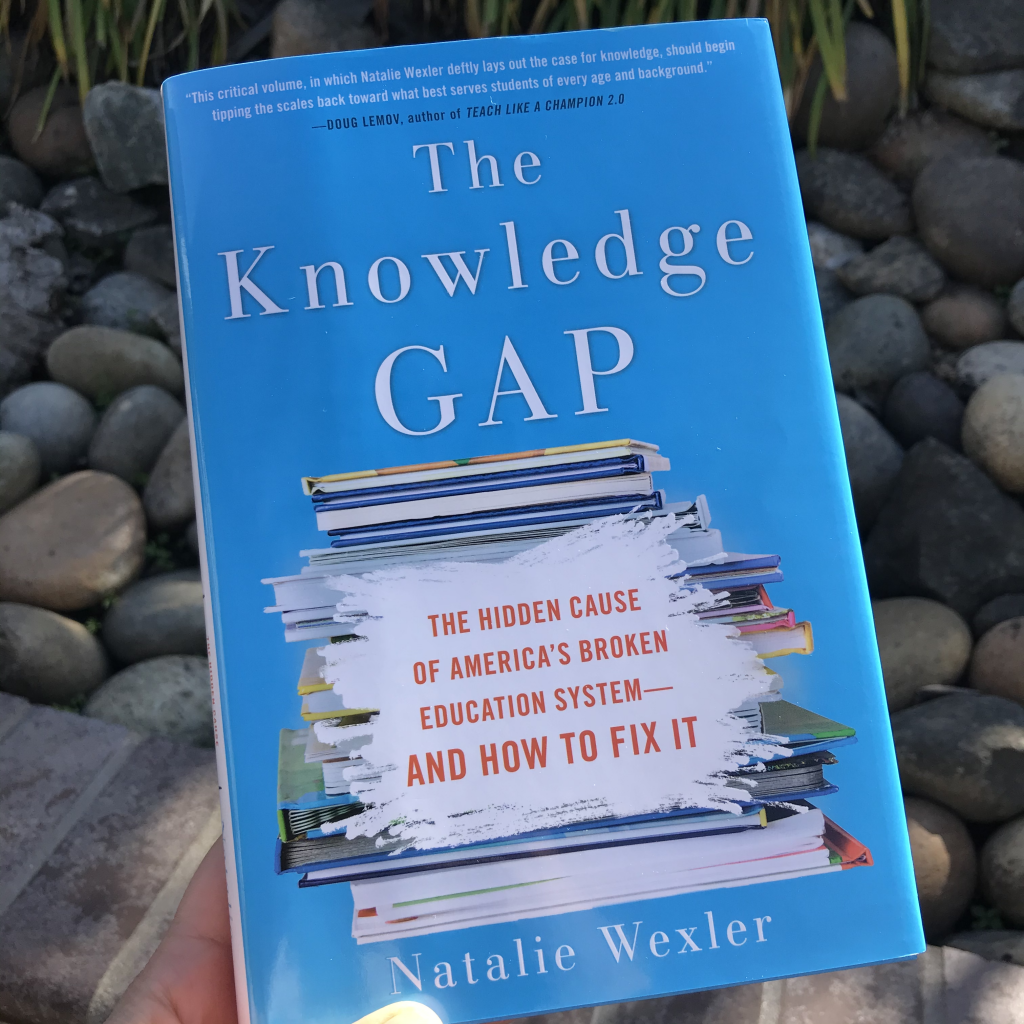
Brilliant article. Thank you for sharing your research, your observations, and most importantly how this affects the workshop model. You have landed on some excellent shifts to consider. I have a LOT to think about.
Thank you, Amanda. You’ve verified my own beliefs about direct instruction and differentiation. I appreciate the book titles.
Natalie Wexler plagiarized a book called The Knowledge Deficit: Closing the Shocking Education Gap for American Children by E.D. Hirsch. Check it out and ask yourself: why wasn’t the author sued? Even the titles are the same. His ideas were already well known during the 80’s.
Wow, this is interesting John. Thanks for bringing it to my attention. I’ll definitely be checking this E.D. Hirsch book out!